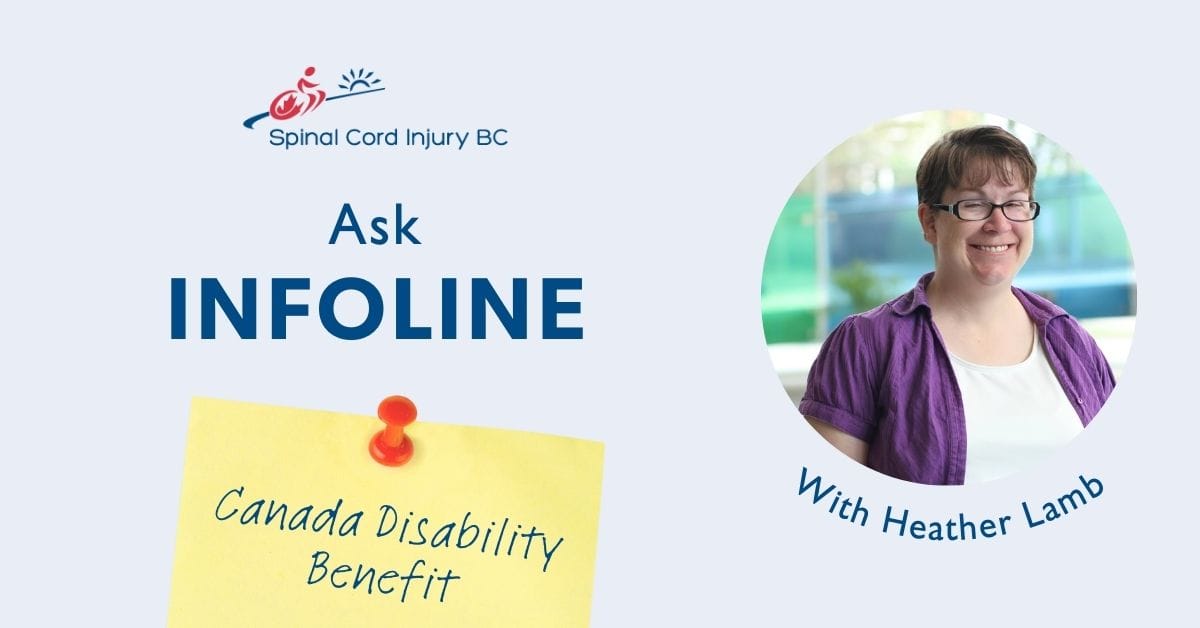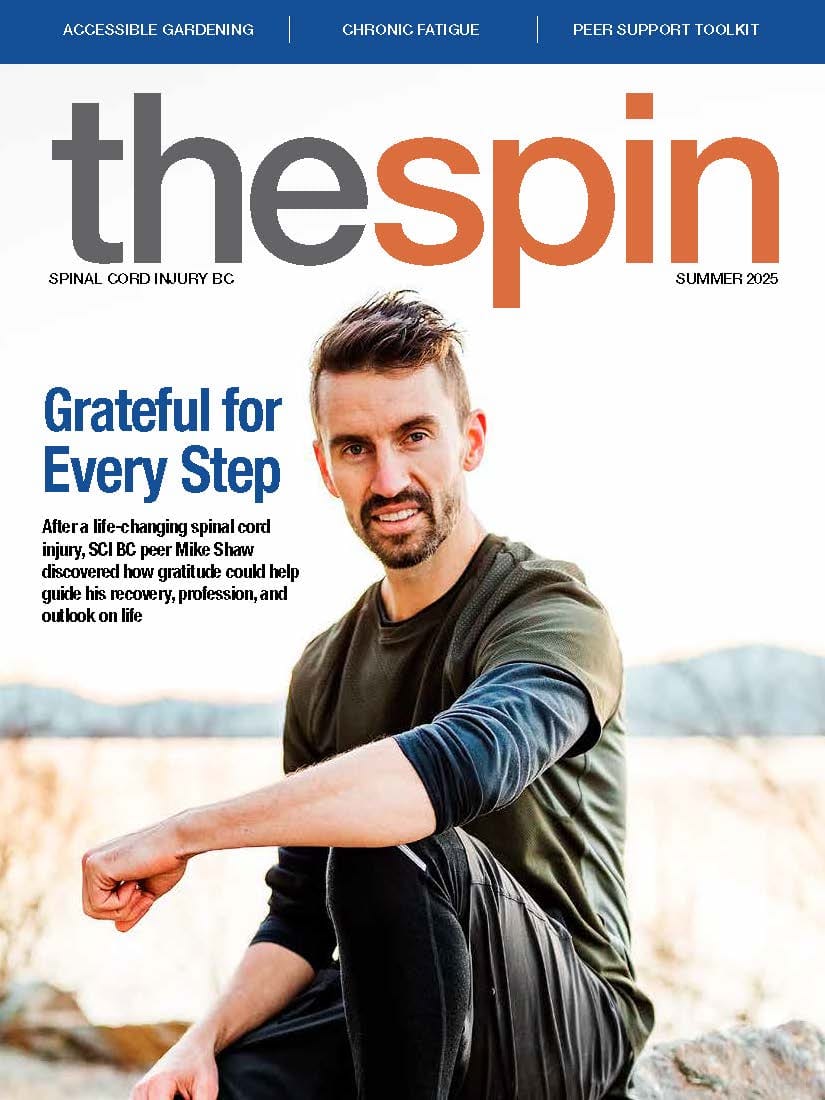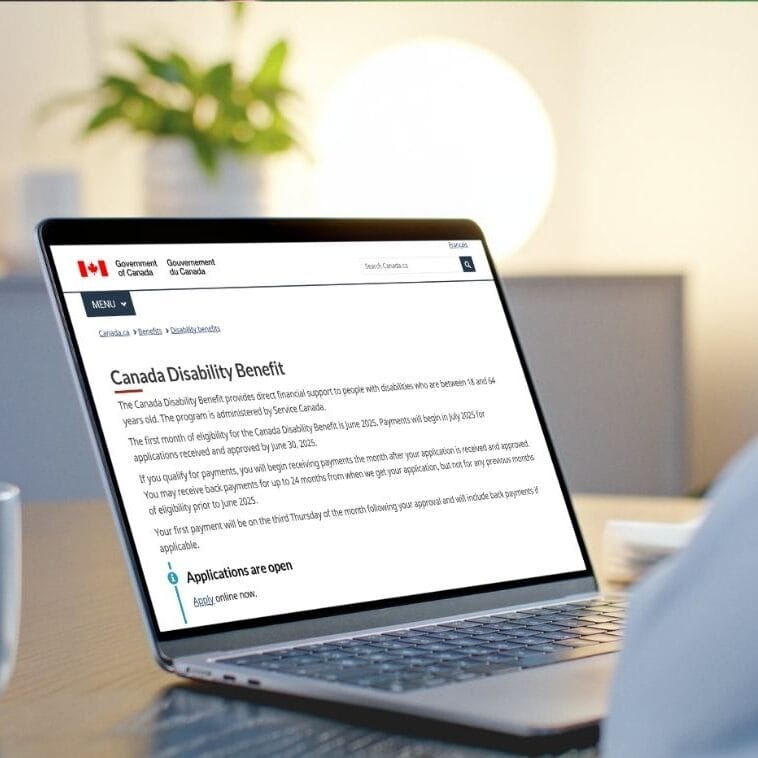
I’ve heard about a new disability benefit in Canada but I don’t know anything about it. Can you tell me what it is and how to apply? I sure could use some extra money! —Shawn, Sechelt
To answer this question we turned to SCI BC’s InfoLine Service Lead, Heather Lamb, MSW, RSW.
Good question! The Canada Disability Benefit (CDB) is a new benefit for disabled Canadians who qualify for the Disability Tax Credit (DTC). The new benefit is meant to provide a tax free financial support paid directly to Canadians with a disability.
The DTC is a non-refundable tax credit that may help to reduce the income tax that you have to pay. It also allows DTC recipients to open a Registered Disability Savings Plan (RDSP), so there are other reasons to ensure you have applied for it if you qualify. To qualify you must “have a severe and prolonged impairment in one of the categories [such as walking], significant limitations in two or more categories, or receive therapy to support a vital function.” See sci-bc.ca/disabilitytaxcredit for full information on eligibility, as well as the application forms.
To apply for the DTC, you will need to submit your application to the Canada Revenue Agency (CRA). You can complete your portion of the application online, by phone, or on paper. If you do it online or by phone, you will be given a reference number that you have to give to your doctor or other medical professional (such as an Occupational Therapist or Nurse Practitioner). They will submit their portion of the form digitally. To apply on paper, complete your section of the form and sign it, then take it to your medical professional and they will complete their section. It can be sent in either by the medical professional or by you as the applicant. Make sure you keep a copy of your application on file.
The CRA will notify you of their decision for the Disability Tax Credit, which can sometimes be backdated (with some limitations) if you’ve had your disability for a while. This may save you money in your taxes.
Once you are approved for the DTC, you can apply for the new Canada Disability Benefit (CDB). The benefit is available for Canadian residents (citizens or permanent residents) ages 18-64 (you can apply at 17.5 years of age). You must file your income tax each year.
This benefit provides up to $200 per month for a single person based on your adjusted family net income. If you’re on PWD, the BC government has promised to not claw this money back from your PWD cheque. For couples, the calculation to determine the monthly benefit will depend on the family income, and whether one or both partners are disabled.
The amount of money you receive will be calculated based on your adjusted family net income. See sci-bc.ca/cdb-amount for a full explanation of what this means, and a calculation of how much you could receive. Those with lower incomes will likely receive the full amount of $200 per month.
Is it worth it to apply for the Canada Disability Benefit if you earn an income? The application is fast and easy, especially if you already have the DTC. If you don’t have the DTC yet, the potential tax benefits make it worth the effort for most people—and any extra money can be a help to cover the extra costs of having a disability.
You can apply for the CDB online, by phone, by postal mail, or at a Service Canada office. Check out sci-bc.ca/cdb-apply for the online application form, or to download the printable version to apply by mail. Call 1-833-486-3007 to apply by phone, or visit your local office.
If you have any questions about how to apply for either the Canada Disability Benefit or the other federal disability savings and credits mentioned in this article, the InfoLine can help! Contact us by phone at 1-800-689-2477 or by email: info@sci-bc.ca.
We can also help you to find out if you might qualify for related government or other funding programs. See our SCI Information Database post on other programs and discounts you might qualify for or ask us directly: sci-bc.ca/disabilityprograms.
Don’t hesitate to contact InfoLine for more information on anything related to SCI or disability in British Columbia.
Additional Tax Preparation Resources
- Tax Tips for People with Disabilities: sci-bc.ca/taxtips
- File income taxes (Disability Alliance BC): disabilityalliancebc.org/file-income-taxes
This article was originally published in the Summer 2025 issue of The Spin. Read more stories from this issue, including:
- Gardening
- Gratitude
- Chronic fatigue
- Peer coaching
And more!





